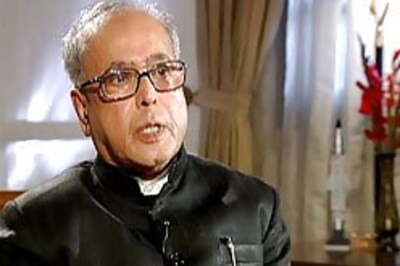
views
Srinagar: After the Supreme Court held that Jammu and Kashmir has "no vestige" of sovereignty outside Indian Constitution and its own statute which is subordinate, Omar Abdullah on Sunday hit out at PDP-led government saying its "weak" legal defence of state's special status was "alarming" as it was allowing "step-by-step erosion" of Article 370.
Asking the state government to come clean on the issue, the NC leader targeted the PDP, alleging that it seems it has decided to facilitate the "long-cherished desire" of its alliance partner BJP "to circumvent and subvert the Constitution of the state" and attributes of Article 370.
"The state government's weak legal defence of various sensitive attributes of the state's special status is alarming.
"The deliberate callousness shown by the state government indicated the tacit connivance of PDP in allowing the step-by-step erosion of Article 370 through a series of politically patronized cases and litigation.
"The PDP-BJP Government should come clean on its stand on this vital issue that could have far reaching implications for the State," the former Chief Minister said here.
The opposition National Conference (NC) working president said the state government's counsel in the Supreme Court has made it evident that the state government prima facie "does not oppose" the application of the SARFAESI Act in Jammu and Kashmir.
"This has far reaching implications as the application of the SARFAESI Act to J-K was debatable in the context of Article 370 of the Constitution of India as also the provisions of the J-K Transfer of Property Act.
"Instead of highlighting these arguments and points of view, the state government's counsel virtually conceded before the SC that Parliament was competent to extend SARFESI Act to J-K," Omar said, alleging this "implicates" the state government in a visible pattern of such incidents that "are aimed at undermining" the state's Constitution and Article 370 of the Constitution of India.
Omar was reacting after the apex court held that provisions of the Securitisation and Reconstruction of Financial Assets and Enforcement of Security Interest Act, 2002 (SARFAESI Act) are within the legislative competence of Parliament and can be enforced in Jammu and Kashmir.
The bench set aside the verdict of Jammu and Kashmir High Court that had held that any law made by Parliament, which affects the laws made by state legislature, cannot be extended to Jammu and Kashmir.
"The State of Jammu & Kashmir has no vestige of sovereignty outside the Constitution of India and its own Constitution, which is subordinate to the Constitution of India," a bench of Justices Kurian Joseph and R F Nariman has said.
"It is therefore wholly incorrect to describe it as being sovereign in the sense of its residents constituting a separate and distinct class in themselves. The residents of Jammu & Kashmir, we need to remind the High Court, are first and foremost citizens of India," it has said.


















Comments
0 comment